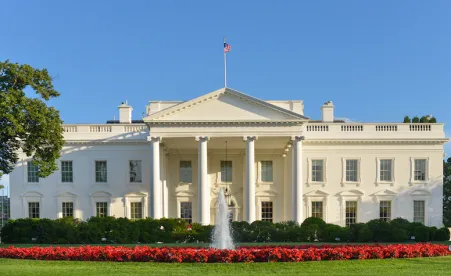U.S. District Judge Timothy Kelly in an oral ruling at 10 a.m. today ordered the White House to return CNN correspondent Jim Acosta's White House "hard pass" immediately.
The White House on November 7, 2018, revoked Acosta's hard pass—which provides reporters with access to the White House grounds and briefings—after a press conference where President Donald J. Trump cut off Acosta's questions, calling him "a rude, terrible person." A White House intern had tried to grab the microphone from Acosta, and the White House initially claimed—contrary to a video on CSPAN—that he had "plac[ed] his hands on a young woman."
CNN filed a lawsuit on the morning of November 13 asking the court for a temporary restraining order and that the White House return Acosta's pass. The court held a hearing the following afternoon, and issued its oral decision this morning.
Judge Kelly, a Trump appointee to the U.S. District Court for the District of Columbia, found that the White House had violated Acosta's due process rights under the Fifth Amendment to the U.S. Constitution by revoking his pass without providing appropriate notice and an opportunity to be heard before the revocation.
The judge completely rejected the White House's argument that a series of tweets and releases from President Trump and Press Secretary Sarah Sanders, and an interim protest letter from CNN, furnished adequate process for Acosta. The judge then applied the legal standards for granting a temporary restraining order and found:
-
It was "unavoidable to conclude" that Acosta had demonstrated a likelihood of success on the merits of his claim. This is because the White House has opened portions of its grounds for the press to use, triggering "some kind of First Amendment liberty interest" once a journalist receives a press pass. As a result, while the President has the right to control the conduct of a press conference, his authority is governed by due process. Here, Acosta was not provided adequate process before his hard pass was revoked. The judge found that the White House's "belated" explanations were insufficient, and he noted that its initial statement that Acosta had been physically inappropriate to the intern who tried to take the microphone from him is "of questionable accuracy" and is "likely untrue."
-
Acosta had demonstrated irreparable harm to his First Amendment liberty interest because, for every day he is banned from White House grounds, he loses opportunities for interviews and breaking news events. Judge Kelly rejected the government's argument that CNN has other pass-holders who have not been banned: "That CNN may send another journalist to the White House does not make the harm to Mr. Acosta any less irreparable."
-
Finally, the judge held that the balance of the equities and the public interest favor Acosta, because "constitutional violations are always contrary to the public interest."
The ruling is a resounding rebuke to the White House's claim of unbridled authority to eject journalists.
Ballard Spahr's Media and Entertainment Law Group represents a coalition of more than 50 news organizations participating in the litigation as amici curiae.






 />i
/>i

